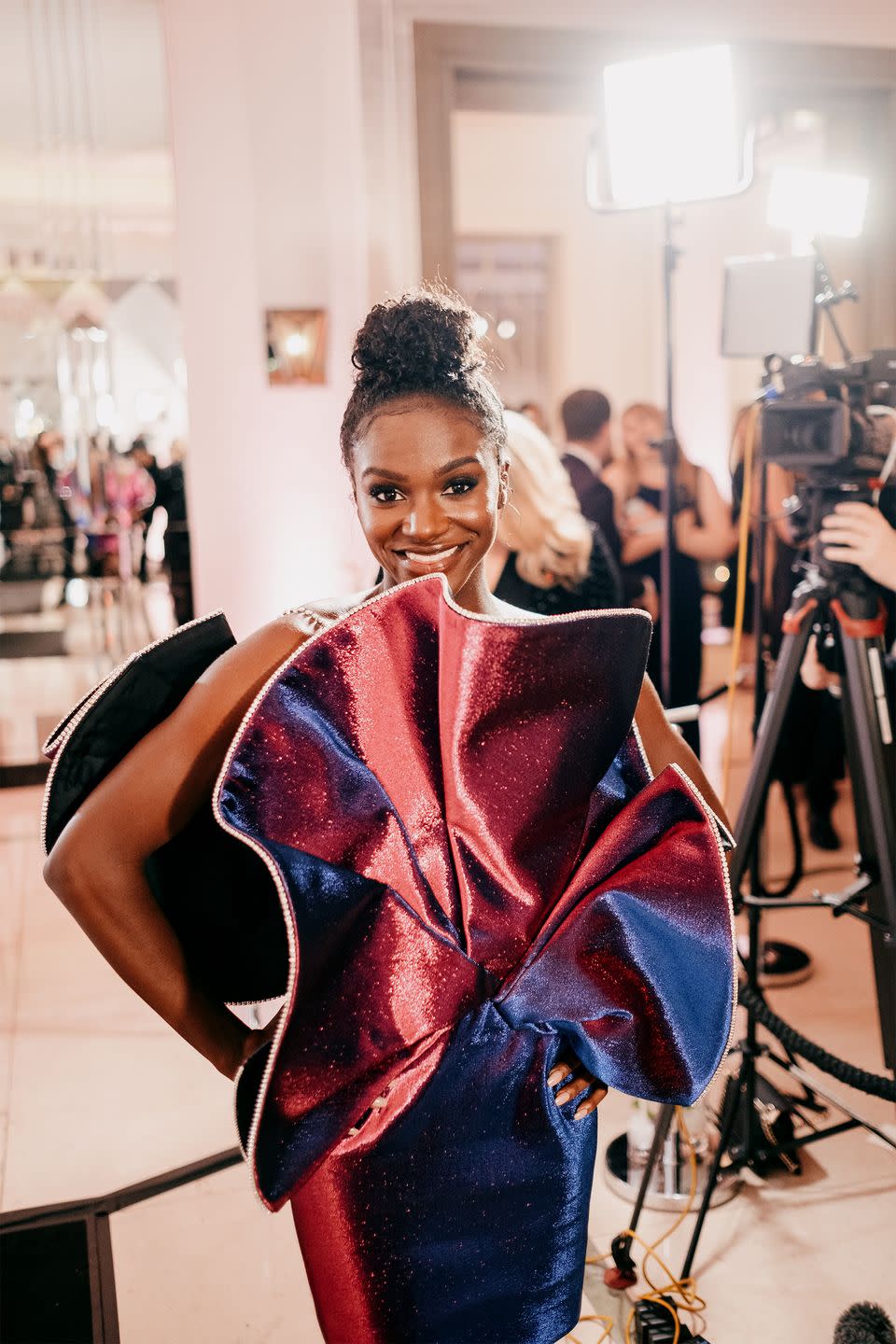Dina Asher-Smith: Champion spirit

These are not the circumstances in which I had been looking forward to watching Dina Asher-Smith onscreen. As the fastest British woman in history, she was one of our brightest hopes for an Olympic gold in Tokyo this summer. Instead, here she is on a sofa, wearing pretty Alice + Olivia silks rather than a singlet, and chatting to me via Zoom from her south-London sitting-room.
While we have all had our lives disrupted by the coronavirus pandemic, many of us have been able to continue working, more or less effectively, from home. For elite athletes such as Asher-Smith, it is, of course, a different story to be housebound, especially when you have been getting yourself ready for potentially the highlight of your entire career.

"For us, it’s all about timing," she explains. "It’s something we’ve been working towards for years. Realistically, you might be at your peak for two Olympics, or three if you’re lucky. So it’s not just “the” Olympics, it’s these particular Olympics." Although, since Asher-Smith is just 24, one would hope she might have several more in her sights.
It took a while for her to accept that the Games would not go ahead this July. "I went through a period of realisation," she says. "I did an interview with a radio station in the Caribbean in January, and they asked me if I thought they would be postponed. I said,“No! Don’t be silly!” And as an athlete, until someone tells you the goal posts have definitely moved, you have to act as though they haven’t, because every day is vital for training. But as time went on and it started to look increasingly unlikely that the Games would take place, I found it harder and harder to stay motivated."
You might therefore expect her to have been distraught when the announcement was made in late March. "When I heard, I went out and got a chocolate cake and a six-pack of Coca-Cola, and I had a lot of McDonald’s apple pies," she says, laughing.
Since then, however, Asher-Smith has stuck to a rigorous diet and training regime, running
in the park and working out for several hours daily with weights and on an exercise bicycle; during the period when most of us were stocking up on loo paper, she panic-bought gym equipment.
Normally, Asher-Smith’s career requires her to travel all year round; this is the longest stretch of time she has ever spent in her flat. But running regularly in her local green spaces has brought her unexpected joy. "There are deer in the park – I’d never seen a real deer before. I’ve been jogging around wondering where they live, where they sleep. I think when life slows down, sometimes it gives you time to re-evaluate what’s important: friends, family, the small things that make you happy."
When I ask her if she’s devastated to miss her chance of an Olympic medal this year, her response is philosophical. "All my friends keep asking me that, but I’m actually really chilled about it," she says. "Other things are far more important. I want to win the Olympics, obviously, but if it’s not safe, then, well, it’s not worth it. After all, it’s just entertainment..."

Asher-Smith’s approach to competing strikes me as unusual in a world where motivational sports coaches can make a fortune teaching businesspeople about the importance of obsessive focus and the will to win.
"People used to say, 'Oh, she doesn’t care,'" Asher-Smith acknowledges. "I do, of course. But I studied history at university, so I spent every day learning about death tolls and wars and bad decisions. I know I’m very fortunate that the most important thing in my life is running fast in a straight line – so I’ve always had the perspective of, 'If it goes well, fab, and if not, then life goes on'.
"I’m naturally a perfectionist, and I could easily be sitting there with videos, winding back my sessions and studying my technique, but that would mean I’d be overthinking as I ran. So I just rely on my coach to either give me a thumbs-up or a 'meh'."

What, then, are the useful lessons she feels women running races can share with those running businesses? The first, she says, is to be as open as possible with your team. "From a very early age, we learn to communicate how we’re feeling, in both body and mind. Whatever you’re feeling is perfectly normal, and you need to communicate it, and to encourage others to do the same."
The second is to prepare for the future. "If I know that I’ve got a race on 30 July, I will work backwards methodically from that date, to ensure that I’ll be in peak condition." It’s a useful exercise post-lockdown too, she believes. "And we all – athletes or not –need to be prepared for the world to be quite different." How is she psyching herself up to cope with that change, I wonder. "It will be a challenge," she admits, "but I don’t let myself think about failing. The more you think about that, the more likely it is to happen."
In need of some at-home inspiration? Sign up to our free weekly newsletter for skincare and self-care, the latest cultural hits to read and download, and the little luxuries that make staying in so much more satisfying.
You Might Also Like


